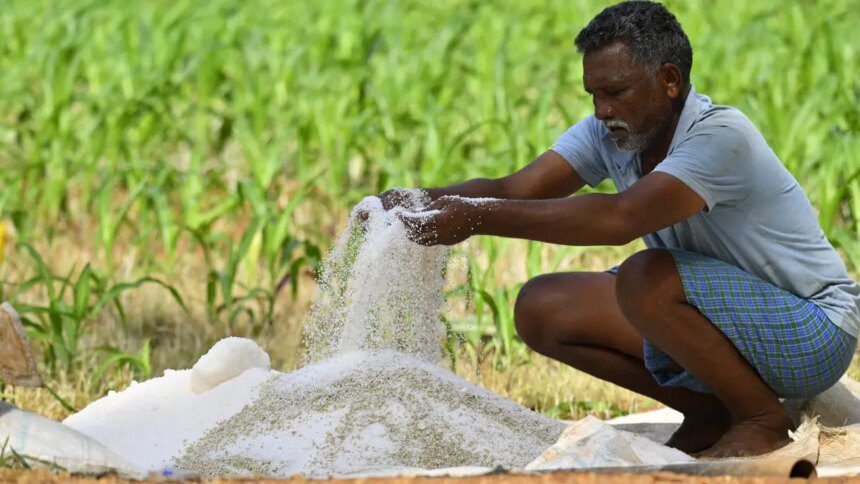Fertilizer dominated discussions at the annual Rabi conference, as several states called for sufficient availability ahead of the winter sowing season, which begins in October. The provision of essential crop nutrients is deemed crucial for meeting targeted agricultural production goals.
Agriculture Minister Shivraj Singh Chouhan announced that seed availability for the Rabi season is expected to exceed requirements, with an estimated need of 22.9 million tonnes (mt) and a supply of 25 mt. However, he did not disclose specific figures regarding fertilizer demand and availability, citing ongoing discussions with various states.
While the government has set a slightly lower target for Rabi crop production, Chouhan expressed confidence that cooperation from agriculture ministers would help achieve the goals outlined in the Viksit Krishi Sankalp Abhiyan. The central government has established a foodgrain production target of 171.14 mt for the Rabi season, which includes targets of 119 mt for wheat and 11.80 mt for chana (gram), alongside a mustard target of around 14 mt.
Looking ahead, Chouhan mentioned a target of 362.5 mt for the 2025-26 crop year (July-June) but did not provide breakdowns by season.
The agriculture minister of Uttar Pradesh, Surya Pratap Shahi, raised concerns about fertilizer shortages during the current Kharif season. He proposed that the Centre increase the price of urea from ₹266.50 to ₹300 per bag, asserting that this adjustment would alleviate retail pressures. “Retailers are complaining that when they acquire urea at ₹275-280 per bag, how can they sell it at ₹266?” Shahi noted, advocating for a more reasonable pricing model to prevent farmers from paying above the maximum retail price (MRP). He suggested that a price hike could reduce the subsidy burden by 12-14 percent.
Shahi also highlighted actions taken by the Uttar Pradesh government to ensure fertilizer availability, including the cancellation of 1,196 retailer licenses, the suspension of 623 staff members, and over 20,600 raids. Furthermore, he proposed linking fertilizer sales to PM-Kisan data and making buyer information available on a portal for transparency.
The state of Karnataka requested the Centre to initiate procurement of Kharif pulses and soybeans, while Telangana called for the removal of caps on the procurement of pulses and oilseeds to guarantee farmers assured sales at minimum support prices.
Additionally, the Viksit Krishi Sankalp Abhiyan is set to commence on October 3, with 2,150 teams of scientists and state officials reaching out to approximately 1 to 1.3 crore farmers across 725 districts. Each team is expected to cover three districts and participate in daily programs, targeting areas that were not included in previous campaigns during the Kharif season.
Published on September 16, 2025










